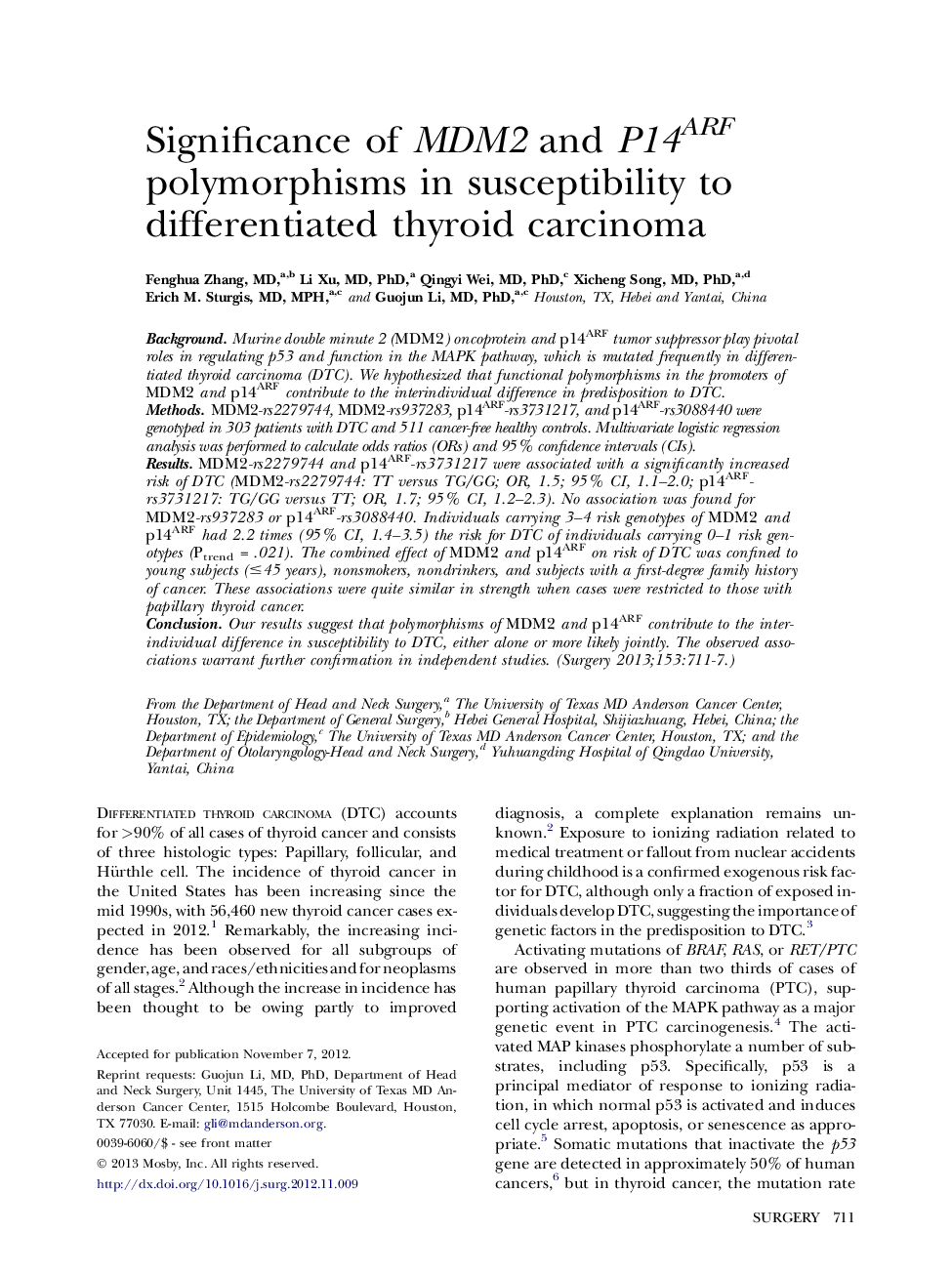| Article ID | Journal | Published Year | Pages | File Type |
|---|---|---|---|---|
| 4307102 | Surgery | 2013 | 7 Pages |
BackgroundMurine double minute 2 (MDM2) oncoprotein and p14ARF tumor suppressor play pivotal roles in regulating p53 and function in the MAPK pathway, which is mutated frequently in differentiated thyroid carcinoma (DTC). We hypothesized that functional polymorphisms in the promoters of MDM2 and p14ARF contribute to the interindividual difference in predisposition to DTC.MethodsMDM2-rs2279744, MDM2-rs937283, p14ARF-rs3731217, and p14ARF-rs3088440 were genotyped in 303 patients with DTC and 511 cancer-free healthy controls. Multivariate logistic regression analysis was performed to calculate odds ratios (ORs) and 95% confidence intervals (CIs).ResultsMDM2-rs2279744 and p14ARF-rs3731217 were associated with a significantly increased risk of DTC (MDM2-rs2279744: TT versus TG/GG; OR, 1.5; 95% CI, 1.1–2.0; p14ARF-rs3731217: TG/GG versus TT; OR, 1.7; 95% CI, 1.2–2.3). No association was found for MDM2-rs937283 or p14ARF-rs3088440. Individuals carrying 3–4 risk genotypes of MDM2 and p14ARF had 2.2 times (95% CI, 1.4–3.5) the risk for DTC of individuals carrying 0–1 risk genotypes (Ptrend = .021). The combined effect of MDM2 and p14ARF on risk of DTC was confined to young subjects (≤45 years), nonsmokers, nondrinkers, and subjects with a first-degree family history of cancer. These associations were quite similar in strength when cases were restricted to those with papillary thyroid cancer.ConclusionOur results suggest that polymorphisms of MDM2 and p14ARF contribute to the interindividual difference in susceptibility to DTC, either alone or more likely jointly. The observed associations warrant further confirmation in independent studies.
